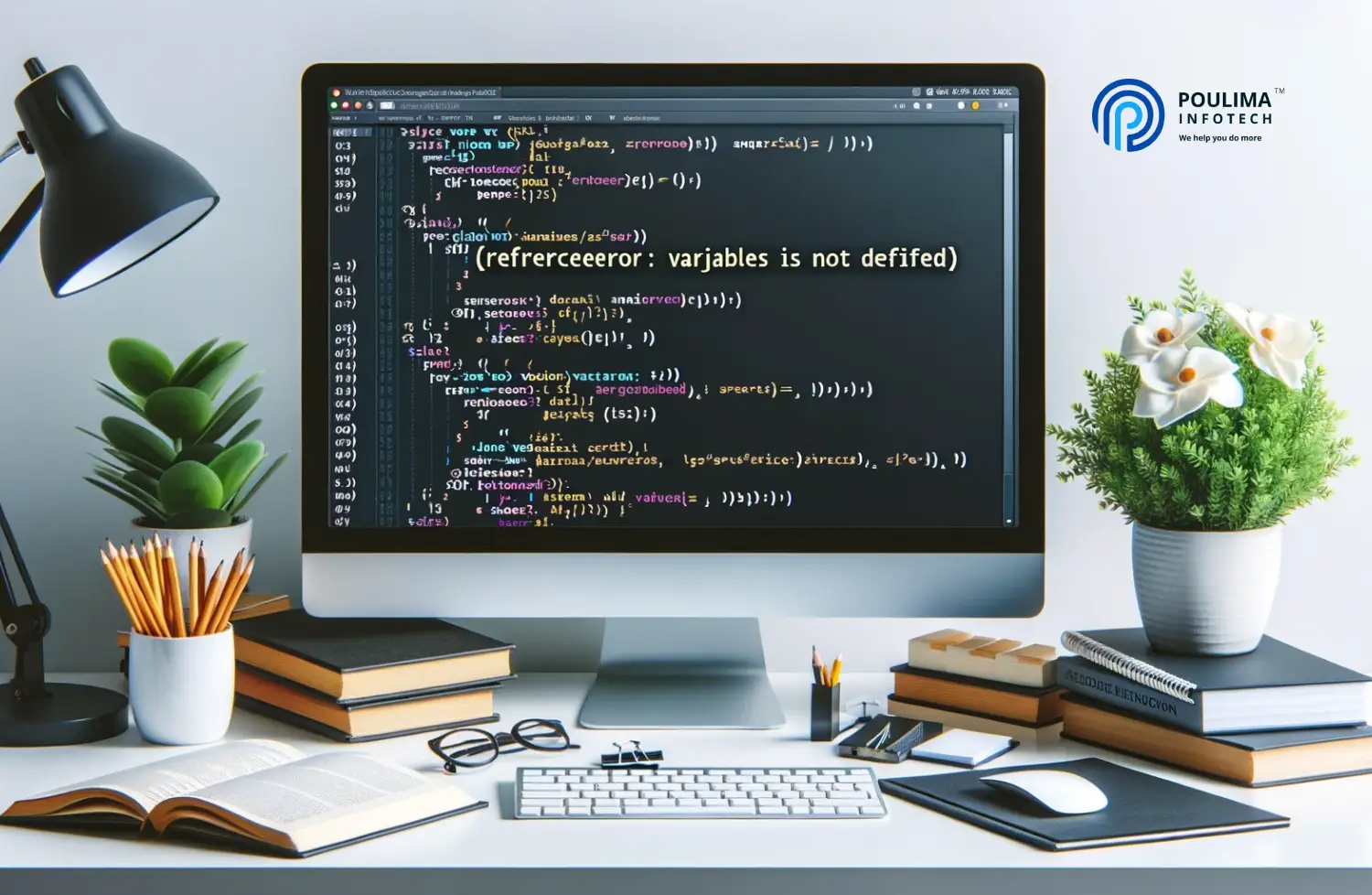Navigating and Resolving "ReferenceError: Variable is Not Defined" in Node.js
Node.js has become an integral part of the modern web development ecosystem, offering speed, efficiency, and a vast npm library ecosystem. However, even the most seasoned developers can run into issues. One of the common errors encountered in Node.js is the “ReferenceError: Variable is Not Defined.” This error can be a stumbling block, but with the right knowledge and practices, it can be quickly resolved. In this blog, we will delve into understanding this error, identifying its causes, and implementing solutions to fix it.
Understanding "ReferenceError: Variable is Not Defined" in Node.js
A “ReferenceError: Variable is Not Defined” occurs when your JavaScript code attempts to access a variable that hasn’t been declared or is not in the current scope. JavaScript is a loosely-typed language, but it is strict about variable usage. Before using a variable, it must be declared using var, let, or const.
Common Causes of Reference Errors
1. Typographical Errors in Variable Names
Example:
let userName = "John Doe";
console.log(userNmae); // Typo here
Fix: Correct the typo.
console.log(userName);
2. Variable Scope Issues
Example: Using a variable outside its scope.
if (true) {
let message = "Hello, Node.js!";
}
console.log(message); // ReferenceError: message is not defined
Fix: Declare the variable in the correct scope.
let message;
if (true) {
message = "Hello, Node.js!";
}
console.log(message);
3. Block Scope with let and const
Example: Accessing a variable before declaring it with let or const.
console.log(greeting); // ReferenceError: Cannot access 'greeting' before initialization
let greeting = "Hello, Node.js!";
Fix: Declare the variable before using it.
let greeting = "Hello, Node.js!";
console.log(greeting);
4. Using Variables without Declaring
Example: Assigning a value to a variable that has not been declared.
count = 10; // ReferenceError: count is not defined in strict mode
Fix: Declare the variable before assigning a value.
let count = 10;
Strategies to Identify and Fix Reference Errors
1. Analyze the Error Message
Node.js provides detailed error messages that include the name of the variable that is not defined.
Strategy: Pay close attention to the error message, noting the variable name and the line number provided.
Benefits: Quick identification of the issue, leading to a faster resolution.
2. Understand Variable Scope
Variables in JavaScript (and by extension, Node.js) have specific scopes, and understanding these scopes is crucial.
Strategy: Ensure that you are trying to access the variable within its scope. If a variable is defined inside a function, it cannot be accessed outside of it.
Benefits: Avoids reference errors related to scope issues and leads to cleaner, more maintainable code.
3. Ensure Proper Declaration
Before usage, it is necessary to declare all variables.
Strategy: Use var, let, or const to declare variables.
Benefits: Prevents reference errors and ensures that all variables are accounted for before use.
4. Implement Strict Mode
JavaScript’s strict mode enforces stricter parsing and error handling on your JavaScript code.
Strategy: Add “use strict”; at the beginning of your JavaScript files.
Benefits: Catches common coding bugs and prevents the use of undeclared variables.
5. Utilize Linters and IDE Features
Linters like ESLint can catch undeclared variables and other issues before runtime.
Strategy: Integrate a linter into your development workflow and pay attention to its warnings and errors.
Benefits: Early detection of potential issues, leading to cleaner and error-free code.
6. Adopt Consistent Naming Conventions
Consistent naming conventions help prevent typographical errors that can lead to reference errors.
Strategy: Choose a naming convention and stick to it throughout your application.
Benefits: Reduces the likelihood of typos and makes the codebase more readable.
7. Implement Unit Testing
Unit tests ensure that each part of your application works as expected.
Strategy: Write tests for your functions and components, ensuring they behave correctly.
Benefits: Catches errors early in the development process, leading to more robust applications.
8. Conduct Peer Reviews
Having another developer review your code can help catch errors that you might have missed.
Strategy: Implement a code review process within your development team.
Benefits: Additional layer of error checking and improvement in overall code quality.
9. Use Version Control Wisely
Version control systems like Git allow you to track changes and find when an error was introduced.
Strategy: Make frequent commits with descriptive messages and use branches for new features or changes.
Benefits: Easier to track down when an error was introduced and roll back to a working state if needed.
Best Practices to Prevent Reference Errors
Always Declare Variables: Before using a variable, ensure it is declared with var, let, or const.
Mind the Scope: Be aware of where your variables are declared and where they are accessible.
Use Linters: Integrate a linter into your development workflow to catch errors early.
Adopt Strict Mode: Use strict mode to enforce stricter parsing and error handling on your JavaScript code.
Consistent Naming Conventions: Adopt a consistent naming convention for variables to avoid typographical errors.
Initialize Variables: Initialize your variables when you declare them to avoid undefined values.
Conclusion
The “ReferenceError: Variable is Not Defined” error is a common issue in Node.js development, but it is also one of the easiest to fix and prevent. By understanding the error, knowing what causes it, and following the strategies and best practices outlined in this blog, developers can write cleaner, error-free code. Remember, coding is an art, and attention to detail is paramount. Happy coding, and may your development journey be smooth and error-free!



